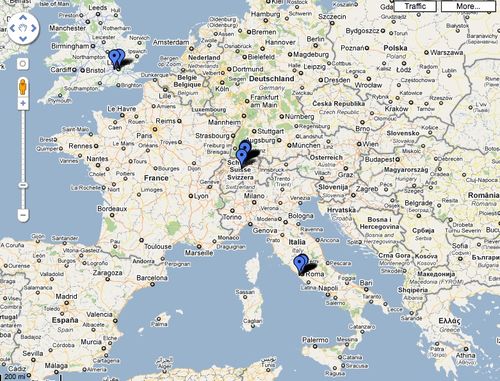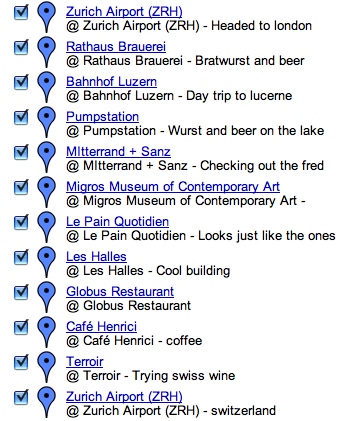We spent three days in Tuscany with old friends. We had a blast. The Gotham Gal batched up a bunch of blog posts and put them all up just now.
The Gotham Gal used to do her travel blogging like that in "batch mode". Check out this post about our visit to Rome a few years ago. It covers four days or more in one post.
Nowadays we all travel with laptops. I even brought the iPad with us this trip. We do something and she blogs about it that same day. Like this visit to MAXXI, the new modern art museum in Rome.
When you can share something you did right away, it is a lot easier to remember the details. And a post about a meal or a museum visit can be a lot more detailed than a post about four days in Rome.
I call that real time blogging and it is very much the way we do things these days. And in a strange twist, being without fixed Internet over the past three days limited how we could blog but also forced us to do more real time blogging. Check out my Tumblr, where I was posting photos from my blackberry. I could tweet too.
And we got seriously into Foursquare in Tuscany. My son must have checked into every store, restaurant, gelateria, and town we visited. It is so easy to do that.
Real time blogging doesn't take any time to do. You snap a photo with your phone, if you like it, you upload it, and get back to seeing the sights and sounds of the town. You sit down to a lunch, checkin, and then open the menu and discuss the options with friends and family.
Even though it doesn't take any time to do, there are benefits of real time blogging, both for us and for those who care to follow our travels. For us, we have created an archive of the things we did and when we want to go back, we can search our archives and find them again. For those who care to follow our travels, there are tons of tips and advice on places to go and where to eat, shop, etc.
Services like Tumblr, Twitter, and Foursquare utilize the mobile phone to make real time blogging possible. It's quick and easy and you can leave a trail both for yourself and your friends and followers.
I did not really miss fixed Internet very much over the past three days and really enjoyed using the phone instead. Next time you go on a trip, try setting up a Tumblog and a Foursquare account, download the apps for your phone, and give it a try. I think you'll enjoy it as much as we did the past three days.






![Reblog this post [with Zemanta]](http://img.zemanta.com/reblog_e.png?x-id=9c4c02e5-b63c-4e3a-866e-87b100255e77)

![Reblog this post [with Zemanta]](http://img.zemanta.com/reblog_e.png?x-id=1c8a9dff-33a1-441e-bef3-3d90b2290192)
